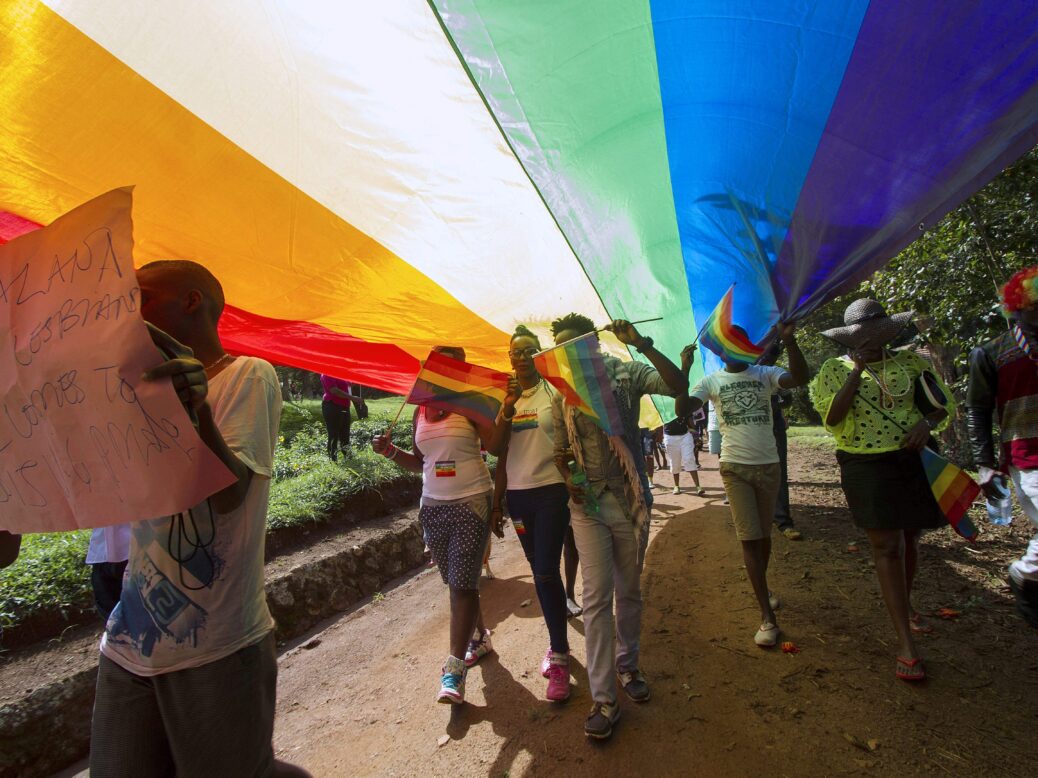
LGBT+ history month brings opportunities for celebration and reflection, with this year being no exception. Five years ago this February, Westminster voted to allow same-sex couples to marry in England and Wales. Despite being a 19-year-old student living in a damp room with no boyfriend, I still remember how unexpectedly emotional I felt when I heard the news. But as is so often the case with queer history, celebration is preceded by suffering and suppression. Later this year it will be three decades since Section 28 came into effect. The infamous legislation, which prohibited local authorities from promoting or mentioning homosexuality, still haunts a generation of LGBT+ people.
This is also the first LGBT+ history month since the celebrations of summer 2017, which marked fifty-years since the partial decriminalisation of male homosexuality in England and Wales. I am careful to emphasise “partial”, because while the Sexual Offences Act 1967 repealed the penalty of life imprisonment for anal sex, the law still discriminated. Gay sex remained prosecutable unless it took place behind closed doors with no one else in the house. Sex between more than two men was also illegal, or if two men were filmed, photographed or even watched having sex by another person. Human Rights campaigner Peter Tatchell claims that arrests of gay men rose by 300 per cent after 1967, with over 15,000 gay men being convicted in the decades that followed. In 1998 (yes, just 20 years ago) seven men in Bolton were convicted of group sex and two were handed suspended jail sentences.
I don’t mention these facts purely to have a grumble. What I find significant is the way that they were neatly airbrushed, by method of celebration, from the majority of 2017’s events and programs. Instead of acknowledgment, the past was manipulated to fit a cheery narrative. This epitomises how western nations, not least Britain, tend to approach our history, and it’s even more prevalent when it comes to the oppression of other cultures and minorities.
The British Empire’s role in exporting homophobic laws across the world perfectly exemplifies this state of deliberate ignorance. Despite the our newly formed image as a global leader in LGBT+ rights, it is important to remember Britain’s history of colonising nations and implementing legal restrictions on same-sex activity. Currently 36 out of 52 Commonwealth nations criminalise either male or female homosexuality. Many of these countries, including Mauritius, Bangladesh and Jamaica, criminalise homosexuality under the exact laws that were imposed by Britain during the colonial era.
To mark LGBT+ history month, surely the UK government should not only face up to its own history, but also consider apologising for Britain’s role in oppressing queer people across the world?
Prior to British colonisation, liberal attitudes towards sex were widely held in areas such as the Caribbean and the Middle East, which are now frequently characterised by western media as the worst places in the world to be gay. “Pakistan is from a region that was historically liberal in terms of sex. There were even times that femininity in men was celebrated,” explains Qasim Iqbal, founder of Naz Male Health Alliance (NMHA), Pakistan’s first and only LGBT+ rights organisation. In Pakistan sodomy still carries a jail sentence of up to ten years under the Penal Code of 1860, which was introduced by the British. “It wasn’t until the white people came with their Christian values that all hell broke loose and we find ourselves in this situation,” says Iqbal.
Like many activists from across the Commonwealth, Iqbal strongly believes that an apology from Britain is well overdue. “There needs to be an apology, a blatant apology. It should come from the highest point in government.” He says, continuing: “I strongly believe that the UK has a responsibility not only to apologise, but also to encourage countries to start working towards decriminalisation.”
But what are the arguments against an apology?
Firstly, there is the worry that if the British government apologises, that countries will expect economic reparations. While I accept the practical realities, this argument carries about as much moral sway as driving off when you scratch someone’s car because you don’t want to pay for a re-spray. Britain should apologise because it is the right thing do to. Recent apologies from the Canadian and Scottish governments towards gay men convicted of historic sex offences also prove that apologies can be worded to avoid such consequences.
Next there is the question of why countries such as Jamaica have not removed these laws in the years since they were introduced. Many Commonwealth nations have changed their legal codes and decriminalised, including most recently Belize and Seychelles. There are also countries such as Barbados that have updated their laws, but continue to criminalise homosexuality. Cultural and legal barriers, many of which did not exist before Britain imposed its values and laws during occupation, still affect LGBT+ people in these places every day.
To expect all nations to repeal colonial laws with ease, even in 2018, ignores the complex dynamic created by colonialism. Donnya Piggott, founder of Barbados Gays and Lesbians Against Discrimination (B-GLAD), argues that systemic homophobia in the Caribbean and West Africa forms part of a “cultural resistance” to western values. “The post-colonial experience of oppression means that people see queerness as something that is foreign or western, so they immediately want to resist it,” she explains. “Caribbean people want to stamp their sovereignty so much that we resist anything that’s western or forced upon us.”
Ugandan activist Dr Frank Mugisha also cites this resistance against western values as an obstacle to his work. Mugisha is the Executive Director of Sexual Minorities Uganda (SMUG), Uganda’s largest LGBT+ rights organisation. He believes that an apology would be effective, as the vast majority of Ugandans, including politicians, are not aware that the “African” laws and values that they fiercely defend were originally imposed by Britain. “There are many Ugandans who do not know that these laws come from the British,” he explains. “An apology might make them ask ‘why are we holding on to these colonial laws?’”
But there are also international activists who are concerned that an apology might end up making their work more difficult. Namibian LGBT+ activist Linda Bauman believes that establishing a clear narrative, through consultation with activists from across the Commonwealth, is key to avoiding this. “We need to define what the apology would mean. What are you sorry for? What does it mean for me?” She explains, continuing: “If everyone is not on the same page, it could increase the risk that countries could set up new homophobic laws.”
Thankfully the framework already exists for this kind of dialogue to happen. In 2017 the Commonwealth Equality Network (TCEN) became the first LGBT+ organisation to receive Commonwealth accreditation, providing activists with an opportunity to put LGBT+ issues on the international agenda. When the Canadian and Scottish parliaments apologised to gay men for historic homophobic laws in 2017, close cooperation between both governments and TCEN member organisations Egale Canada and Equality Network resulted in a genuine moment of reconciliation between citizens and state.
LGBT+ history month is a time for celebration, but also for contemplation. In addition to queer people remembering the sacrifices and successes of our community, governments should reflect on their actions towards LGBT+ people, both at home and abroad. With so many LGBT+ people still facing criminalisation and persecution as a result of colonialism, it is imperative that the British government acknowledge its homophobic legacy.
In a speech last October, Theresa May did admit that Britain has a “special responsibility” to change hearts and minds. But it’s time to take those words further and turn them into action. After working with activists from across the Commonwealth to establish a path forward that works for all, Britain should reaffirm its commitment to global LGBT+ equality by finally apologising for this ugly chapter in its history.





